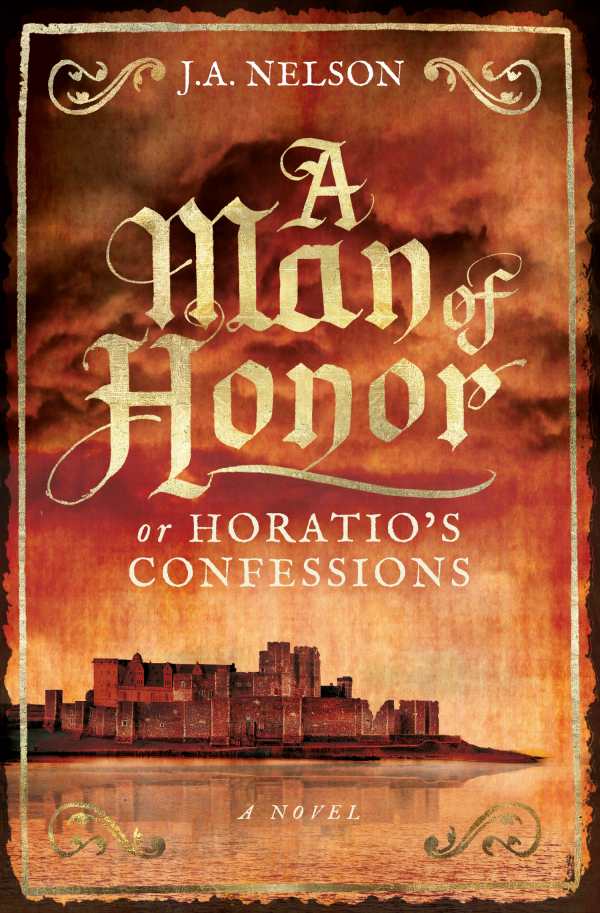
A Man of Honor, or Horatio's Confessions
With its literary flourishes and exciting scenes, A Man of Honor addresses ethical questions in fascinating ways.
In J. A. Nelson’s historical novel A Man of Honor, Hamlet’s friend Horatio tells an evocative, compelling story of his own.
As Hamlet dies, he asks his friend Horatio to tell his story to all who will listen. Horatio agrees, but the commitment proves treacherous, trapping Horatio and the small kingdom of Helsingør between two violent and powerful kings, Cristiern of Denmark and Fortinbras of Norway. Both seek dominion over tiny Helsingør, and Horatio must lie to both kings to save his people and fulfill his pledge to Hamlet.
Knowledge of Shakespeare’s play is not vital; background information is woven in. Horatio narrates. He is sympathetic and earnest, a commoner who struggles to honor his pledge and who has moral qualms about the lies he tells on Hamlet’s behalf. Margrete wins Horatio’s heart, while Lanier, an itinerant aide whose wit surfaces in flourishes of dark humor, also plays a major role.
When Fortinbras storms the castle and searches for King Claudius, it’s Lanier who finds the body rolled in a rug and, unfurling it, announces, “Mon seigneur, I present Claudius … He cannot receive you.” Lanier and Margrete outrank Horatio in intelligence and experience, but recognize his inner worth and save him from naïve and dangerous blunders. Supporting characters are convincing in their roles, and Reynaldo, a treacherous spy, stirs real resentment.
Setting and moods are established well; even the opening chapter conveys fresh death in all its macabre fascination. Emphasis is placed on the Scandinavian setting, conjuring a world closer in spirit to that of the Vikings than to the Elizabethans. Descriptions of blood and battle capture the flavor of Nordic sagas.
Excitement is introduced to the potentially tame story line in clever ways. Horatio decides he can prompt Fortinbras into defending Helsingør by researching facts that justify a flattering biography. No such facts exist, but when a prized account of Danish history is nearly destroyed in a fire, Horatio saves it. He decides to replace it with his own faux history praising the House of Fortinbras and incorporating details that restore Hamlet’s honor. The book, pursued by both kings, injects intrigue, danger, and a harrowing kidnapping into the story. Literary fans will recognize the book, Gesta Danorum, as one of the sources Shakespeare drew on for his play.
As Horatio, Margrete, and Lanier attempt to evade both kings, the story crescendos with a suspenseful escape by sea, though its emotional release is undone by a long addition that skips ahead six years to a second, weaker kidnapping. An epilogue set eighty-five years in the story’s future undermines the liveliness of Horatio, Margrete, and Lanier’s stories.
In A Man of Honor is a literary novel featuring taut action and strong characters who address questions about the nature of integrity.
Reviewed by
Susan Waggoner
Disclosure: This article is not an endorsement, but a review. The publisher of this book provided free copies of the book and paid a small fee to have their book reviewed by a professional reviewer. Foreword Reviews and Clarion Reviews make no guarantee that the publisher will receive a positive review. Foreword Magazine, Inc. is disclosing this in accordance with the Federal Trade Commission’s 16 CFR, Part 255.
